by Rafaël Newman
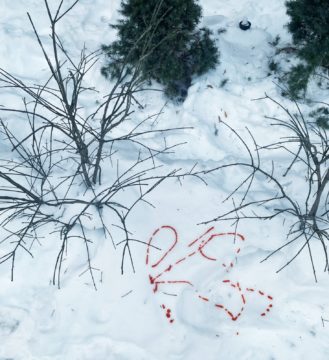
One afternoon in the 1980s, when I was at grad school at a university in the northeastern United States, I went for coffee with a slightly senior colleague. A boisterous, opinionated, well-liked Brooklyn native, she was renowned (or notorious, depending on one’s philologico-political position) for applying the latest “French theory” to ancient poetry, for her general sensitivity to the dernier cri emanating from Paris by way of New Haven, and for her reputed personal allegiance to the same polyvalent libertinage attributed to some of the most celebrated authors of classical antiquity.
At a certain point in our conversation, as I expatiated on my own aspirations in the burgeoning world of destabilized narrative and fluid identity, she leaned in close to confide in me, half conspiratorially, half shame-facedly: “Don’t tell anyone, but I’m not a lesbian.”
Her secret was safe with me; but I was shocked.
I daresay that the men with whom I made music almost thirty years later, in a band known as The NewMen, would have had a similar reaction had they heard of my publication of a text bearing on our work together: if they were thus to have their half-spoken suspicions confirmed, that the person who had been passing himself off as an emanation of postmodern subculture, and a disaffected dropout from the groves of academe, was in fact a mole; not the real thing at all, not a flesh-and-blood proponent of the idiom but a desiccated reflector upon it; not a creator but a critic; not the guarantor of folk authenticity via his full bodily and spiritual presence but a neurotic fetishizer of generic typologies—in short, a eunuch in the harem, rather than the sultan himself.
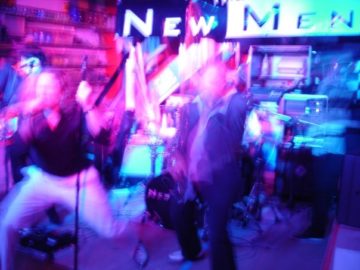 For although we had set out to create music ultimately classified as Country Punk, an offshoot of the youth movement that had arisen in the US and the UK in the 1970s, and were guided in this pursuit by various influences absorbed during the more or less studious period of our adolescence, among them Buzzcocks, Social Distortion, Handsome Ned, and, most crucially, Johnny Cash, Hank Williams, and the Clash, what we were really in it for was the chance to pose on stage and make noise. And although all men of a certain age, with families and workaday responsibilities and presumably accustomed to standing on our own two feet, yet each still required the alibi of the others’ narcissism to safely make a production of himself, while at the same time deploying the venerable tactic of triangulation to engage in homosocial flyting and flirting, under protective cover of the female gaze from the dance floor.
For although we had set out to create music ultimately classified as Country Punk, an offshoot of the youth movement that had arisen in the US and the UK in the 1970s, and were guided in this pursuit by various influences absorbed during the more or less studious period of our adolescence, among them Buzzcocks, Social Distortion, Handsome Ned, and, most crucially, Johnny Cash, Hank Williams, and the Clash, what we were really in it for was the chance to pose on stage and make noise. And although all men of a certain age, with families and workaday responsibilities and presumably accustomed to standing on our own two feet, yet each still required the alibi of the others’ narcissism to safely make a production of himself, while at the same time deploying the venerable tactic of triangulation to engage in homosocial flyting and flirting, under protective cover of the female gaze from the dance floor.
As the only native English-speaker among us, and the putative embodiment of a sensibility forged in such noted punk crucibles as Toronto, Berlin, and New Jersey, I had been given the task of creating texts for the numbers that grew out of our jam sessions, and of elaborating a vocal line to complement occasionally ambitious chord progressions and harmonies.
In keeping with this remit, and with the burden laid upon me by a double tradition, I set out at first to craft lyrics that were at once muscular, “in your face”—what the Swiss call brachial, which always has for me the connotation of the gorilla’s trademark swagger—and informed by the native wit and word play of the country-&-western standards we would-be punks had found ourselves listening to in the early to mid-80s, cognisant of our self-exclusion from the African-American idioms—rock n’ roll, reggae, and rap—that bracketed our mockney-inflected experience. Think “White Man in Hammersmith Palais” with equal parts John Prine and Loretta Lynn.
Hence in our case such bombastic texts as “I Popped a Cop” (“Well it was Saturday night and I didn’t have much to do / Yeah I was kickin’ it around, hopin’ I could score some glue”), “9 Mississippi” (“I was thinkin’ about my baby / And why she let me wander / But the times I treat her reckless / Well I guess it ain’t no wonder”) and “Rockin’ at the Rosenburg” (“Rockin’ at the Rosenburg and rollin’ down the street / I bet that you ain’t never heard a sound so rough and sweet”), in which a garage-band raunchiness is wedded to the rude sentimentality of Route 66 and points southeast.
But what soon began to preoccupy me in my compositional work were problems familiar from my time in the university classroom, teaching romantic poetry and the epic tradition and leading creative writing seminars on lyric and slam poetry: the creation of the illusion of spontaneity and presence; the generation of a fictional self and its distinction from the persona of the creator; and the performance of ostensibly solitary texts by a choral group, for an audience (or readership) whose very presence, in accordance with the observer effect, surely, if only retroactively, alters the conditions of creation. Not that I deliberately set out to experiment with the forms I had been teaching; but it was inevitable that something of the studium with which I had invested such creation by others should issue in a punctum of my own making.
I began obliquely, with inter-textual references to loci not exactly typical for the country-punk tradition, such as Homer’s Iliad (in “Red Streetcar Blues”) or Hesse’s Siddhartha (in “I Think”), and with the use of a poem by the jailed Chinese dissident Shi Tao as the template for “June,” conceived as a Tiananmen commemorative protest song in the spirit of Neil Young’s “Ohio”. The process was familiar to me from my earliest attempts at the scholarly essay form, when I found I could overcome the horror vacui that gripped me at the sight of the blank page with recourse to the expedient of the cleverly chosen, surprisingly apposite citation of the guru du jour (in the eighties typically Joyce or Mallarmé, ceding pride of place in the nineties to such latter-day luminaries as Lacan and Žižek), which would then allow me to broach my disquisition proper in a sidelong fashion, as it were; to surprise myself into the act of writing in my own voice. Now, in my new capacity as songsmith, in addition to shoehorning myself epigraphically into a novel genre, I was also signaling—if only, initially, to myself—my ambivalence about this excursus from the familiar realm of belles lettres into an adopted folksy idiom.
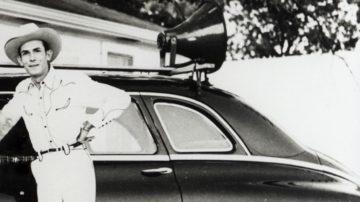 Soon enough, however, I had found my feet and was ready to try something more radically genre-bending. For recall that the patron saints of our endeavor were Johnny Cash and The Clash (we had briefly considered calling ourselves Johnny Clash before hitting on the Ramones-like common cognomen “NewMen”); and, above all, Hank Williams. Williams, who was born in Alabama and made his career in such institutions of southern culture as the Grand Ole Opry and the Louisiana Hayride, and whose son, Hank Williams, Jr, became a fixture of the country music establishment, was a bard of loneliness and longing who died of a mixture of pills and alcohol in the back seat of a car on New Year’s Eve at the age of 29, a demise that was distinctly Punk avant la lettre and which cast the attractive shadow of the poète maudit back over his extensive, and extensively covered, oeuvre. This includes such elegies – not to say dirges – as “I’m So Lonesome I Could Cry,” “Your Cheating Heart,” and “Why Don’t You Love Me Like You Used To Do,” which last features the immortal plaint “My hair’s still yaller and my eyes are still blue / Why don’t you love me like you used to do?” We included Williams’s haunting anti-epithalamium “Wedding Bells” in our repertoire of cover songs, as well as his “Lovesick Blues,” whose jaunty, yodeling refrain is belied by the desperation of the verse (“Lord I don’t know what to do-o-o / All I do is set and sigh-ee-eye-ee-oh Lord”) and which would send audiences off home, and perhaps to bed, with an appropriate sense of the bitter-sweetness of young love.
Soon enough, however, I had found my feet and was ready to try something more radically genre-bending. For recall that the patron saints of our endeavor were Johnny Cash and The Clash (we had briefly considered calling ourselves Johnny Clash before hitting on the Ramones-like common cognomen “NewMen”); and, above all, Hank Williams. Williams, who was born in Alabama and made his career in such institutions of southern culture as the Grand Ole Opry and the Louisiana Hayride, and whose son, Hank Williams, Jr, became a fixture of the country music establishment, was a bard of loneliness and longing who died of a mixture of pills and alcohol in the back seat of a car on New Year’s Eve at the age of 29, a demise that was distinctly Punk avant la lettre and which cast the attractive shadow of the poète maudit back over his extensive, and extensively covered, oeuvre. This includes such elegies – not to say dirges – as “I’m So Lonesome I Could Cry,” “Your Cheating Heart,” and “Why Don’t You Love Me Like You Used To Do,” which last features the immortal plaint “My hair’s still yaller and my eyes are still blue / Why don’t you love me like you used to do?” We included Williams’s haunting anti-epithalamium “Wedding Bells” in our repertoire of cover songs, as well as his “Lovesick Blues,” whose jaunty, yodeling refrain is belied by the desperation of the verse (“Lord I don’t know what to do-o-o / All I do is set and sigh-ee-eye-ee-oh Lord”) and which would send audiences off home, and perhaps to bed, with an appropriate sense of the bitter-sweetness of young love.
But as I reflected on this icon of rustic sentimentality who was in his own biographical experience a generic hybrid between country idiom and urban drug-fueled decadence, and as I attempted to cross-pollinate his spirit with that of others who had lived fast and died young, such as Sid Vicious and Keith Moon, my thoughts turned to an earlier cohort of artistic creators with which I was familiar, and which had been similarly consumed by neurasthenia, addiction, political frustration, and a love affair with easeful death: namely the Romantics, and more particularly their Austro-German Biedermeier variety.
In the aftermath of the Napoleonic Wars and the resurgence of nationalism that emerged from them, and especially with the repression of that same particularist political spirit by Metternich and the forces of reaction, the Sturm und Drang of the 18th century was succeeded by an ironic inwardness that relocated thwarted struggles for hegemony and independence within the nascent self, and opened up an internal revolutionary front that proved fertile ground for allegory and allusion.
Among the poets of this generation in the German-speaking world, one stands out for his active involvement in the so-called Wars of Liberation, his lyric evocations of loneliness and unrequited love, his early death, and the appeal of his texts to more than one composer for musical settings: Wilhelm Müller, a volunteer in the Prussian forces against Napoleon, habitué of Berlin salons and fellow of Tieck, von Arnim, and Brentano, and the author of, among other works, two great cycles of poems dedicated to the fundamentals of an affective life in the existentially precarious aftermath of life-threatening struggles and self-affirming passions, Die schöne Müllerin and Die Winterreise.
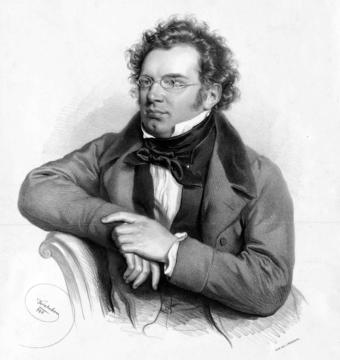 Most of all, of course, what drew me to Müller was the susceptibility of his lyrics to settings by contemporary composers, first and foremost among them Franz Schubert, himself a member of the same frustrated Biedermeier cohort of political liberals and late Romantics, as well as of the live fast, die young crowd (if not of the notorious “27 club,” an illustrious company that includes Janis Joplin, Jimi Hendrix and, latterly, Amy Winehouse: for Schubert succumbed, probably to syphilis, at the ripe old age of 31).
Most of all, of course, what drew me to Müller was the susceptibility of his lyrics to settings by contemporary composers, first and foremost among them Franz Schubert, himself a member of the same frustrated Biedermeier cohort of political liberals and late Romantics, as well as of the live fast, die young crowd (if not of the notorious “27 club,” an illustrious company that includes Janis Joplin, Jimi Hendrix and, latterly, Amy Winehouse: for Schubert succumbed, probably to syphilis, at the ripe old age of 31).
Of the two cycles of Müller’s poems set to music by Schubert, Die schöne Müllerin (“The Beautiful Miller’s Girl”), your typical boy-meets-girl, boy-loses-girl, boy-drowns-himself-in-brook story, is the more conventional, and conventionally satisfying, narrative; but it is Die Winterreise (“The Winter Journey” or, in Schubert’s article-less adaptation, simply “Winter Journey”) that attracted me, precisely because of its open-endedness, indeed its proleptically postmodern refusal to commit itself to one concrete master narrative. Ian Bostridge, the celebrated English tenor and cultural historian who has devoted a book-length study to the cycle, calls it “the first and greatest of concept albums,” which stresses its continuing contemporaneity while downplaying the polysemous, centrifugal nature of the cycle, which Bostridge then goes to some lengths to demonstrate.
The Winter Journey begins, in the cycle as published by Müller in two instalments in the early 1820s as well as in Schubert’s 1827 setting, counter-intuitively, with a valediction: “Gute Nacht” (“Goodnight”):
Fremd bin ich eingezogen,
Fremd zieh’ ich wieder aus.
Der Mai war mir gewogen
Mit manchem Blumenstrauß.
Das Mädchen sprach von Liebe,
Die Mutter gar von Eh’, –
Nun ist die Welt so trübe,
Der Weg gehüllt in Schnee.Ich kann zu meiner Reisen
Nicht wählen mit der Zeit,
Muß selbst den Weg mir weisen
In dieser Dunkelheit.
Es zieht ein Mondenschatten
Als mein Gefährte mit,
Und auf den weißen Matten
Such’ ich des Wildes Tritt.Was soll ich länger weilen,
Daß man mich trieb hinaus?
Laß irre Hunde heulen
Vor ihres Herren Haus;
Die Liebe liebt das Wandern—
Gott hat sie so gemacht—
Von einem zu dem andern.
Fein Liebchen, gute Nacht!Will dich im Traum nicht stören,
Wär schad’ um deine Ruh’,
Sollst meinen Tritt nicht hören –
Sacht, sacht die Türe zu!
Schreib’ im Vorübergehen
Ans Tor dir: Gute Nacht,
Damit du mögest sehen,
An dich hab’ ich gedacht.(For the complete texts and basic English translations of the songs see Thomas Hampson’s well-curated site.)
And here is the text of “Blood on the Snow Tonight” by The NewMen:
I was a stranger when I got here
And I ain’t met nobody yet
Just like spring showers
They bring May flowers
This here pilgrim’s sails are setThere used to be a girl who loved me
Her folks they called me Mr Right
But that’s all long ago
The world has lost its glow
And there’ll be blood on the snow tonightGoodbye angel, goodbye stranger
There’ll be blood on the snow tonightIt’s so dark the moon’s a shadow
And it’s my one and only light
There ain’t no map can say
Where I done went astray
But there’ll be blood on the snow tonightGoodbye my angel, goodbye my stranger
There’ll be blood on the snow tonightDream on darling
Don’t let me stir you
I wouldn’t want to bring you down
But I’m already bound
For the stony ground
On the midnight side of townIn the morning
When you waken
And look out on fields of white
Read the elegy
That you wrote for me
There’ll be blood on the snow tonight
What is immediately obvious about my version of the German text is that it plays somewhat more fast and loose with (perhaps hackneyed) jokes and country-bumpkin idioms, while at the same time pushing the suicidal imagery of Müller’s original rather farther in the direction of the literal: “there’ll be blood on the snow tonight,” after all, promises an act of violence that is all the realer for its harnessing as a figure for writing (for of course “when you waken and look out on fields of white, read the elegy that you wrote for me” echoes the silent valediction posted “ ans Tor” [“on the gate”] by Müller’s figure).
The music we developed as a setting for the text, meanwhile, substitutes rising vocal energy and melodic dynamics for Schubert’s ironic, counterintuitive shift, towards his song’s close, from minor to major (as Bostridge notes, “As so often in Schubert, the major seems, contrary to the commonplace notion of key mythologised in Cole Porter’s ‘Ev’ry Time We Say Goodbye’ [‘and how strange the change from major to minor’], sadder than the minor”). “Blood on the Snow Tonight” also mimics the plodding rhythm of “Gute Nacht” with a stumbling percussion break, regularly the source of hilarity in rehearsal when our drummer would attempt to change it up with a less awkward variation. The combined effect of these musico-structural gestures, then, was to give our song an air of defiance in the face of despair shared with Hank Williams’s yodeling blues.
Of course, these interpretations, both textual and, especially, musical, were not wholly deliberate, but grew in large part out of the collaborative effort of “jamming” in that bomb shelter (a relic of another ideological conflict among imperial powers); and while I was to some extent able to direct the structure of the song as it developed, in line with my own, still unavowed Biedermeier inspiration, the actual mechanics of musical composition were (and still are) beyond my grasp. Instead, my comrades and I were moved at the time by the same hybrid spirit of invention, conscious of our explicitly double indebtedness to Country and Punk idioms both: a ferment of folk conservatism and urban anarchism that proved extraordinarily fertile; and it is largely in retrospect that I have become conscious of the degree to which we were replicating what may very well have been the experience of a yet more ancient lyric tradition.
In an essay in The New Yorker, Daniel Mendelsohn asks “Who was Sappho?” and considers the legendary poet’s posthumous career as an icon of queer identity politics, among other things (Judith Butler had evidently believed during her youth, reports Mendelsohn, that her sexuality was confined to “only me and a woman called Sappho”). In addition to reviewing the scanty extant evidence for Sappho’s biography, which renders the issue of her “orientation” moot, Mendelsohn remarks interestingly on the similarly vexed, if rather more philological, matter of the generic context of her lyric poetry: scholars, he writes,
have argued that many, if not most, of Sappho’s poems were written to be performed by choruses on public occasions. In some lyrics, the speaker uses the first-person plural ‘we’; in others, she uses the plural ‘you’ to address a group—presumably the chorus, who danced as she sang. (Even when Sappho uses the first-person singular, it doesn’t mean she was singing solo: in Greek tragedy the chorus, which numbered fifteen singers, regularly uses ‘I.’)
In other words, the Romantics were not the first cohort of European artists to craft a seemingly natural, solitary self and purvey it to subsequent generations as authentic affective presence; nor would they be the last, as my experience with The NewMen was to teach me. “The error we are always making as listeners,” writes W.G. Sebald in an essay on Mörike in which he also touches upon Schubert as a setter of lyric poetry, “lies in the assumption that language and music are invoking their natural heritage in these miracles of melody, when in fact they are the most artificial elements of them.” Which is to say, in positive terms, that the ostensibly monadic identity, fashioned of equal parts ancient monodic tradition and early modern romantic inwardness, is in fact a performance; one that is also, at the same time, the postmodern interpretation of those ancestral, putatively authentic idioms (of which the selfie, that elaborately staged and obsessively displayed performance of the solitary subject, is of course only the most recent, visual correlative).
Or, in Heinrich Böll’s formulation, in his account of a German soldier en route to the Eastern front who is overcome by sentimentality at the strains of Schubert played in a brothel, loneliness may be the paradoxical, pathological effect of being in company, with all of the complications, entanglements, and disappointments that entails. But as I have learned, both on stage and in the classroom, not to mention with plume (or rather mouse) in hand, as I attempt to fashion a plausibly sovereign self from the fragments of a host of traditions: that is where the music is.
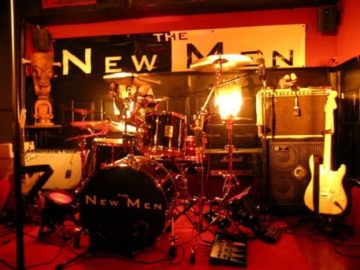
This text originally appeared in the proceedings of the “Scholars as Fictionists” conference held at the University of Gdańsk in October 2015. It is posted here, in modified form, on the 225th anniversary of Franz Schubert’s birth.
